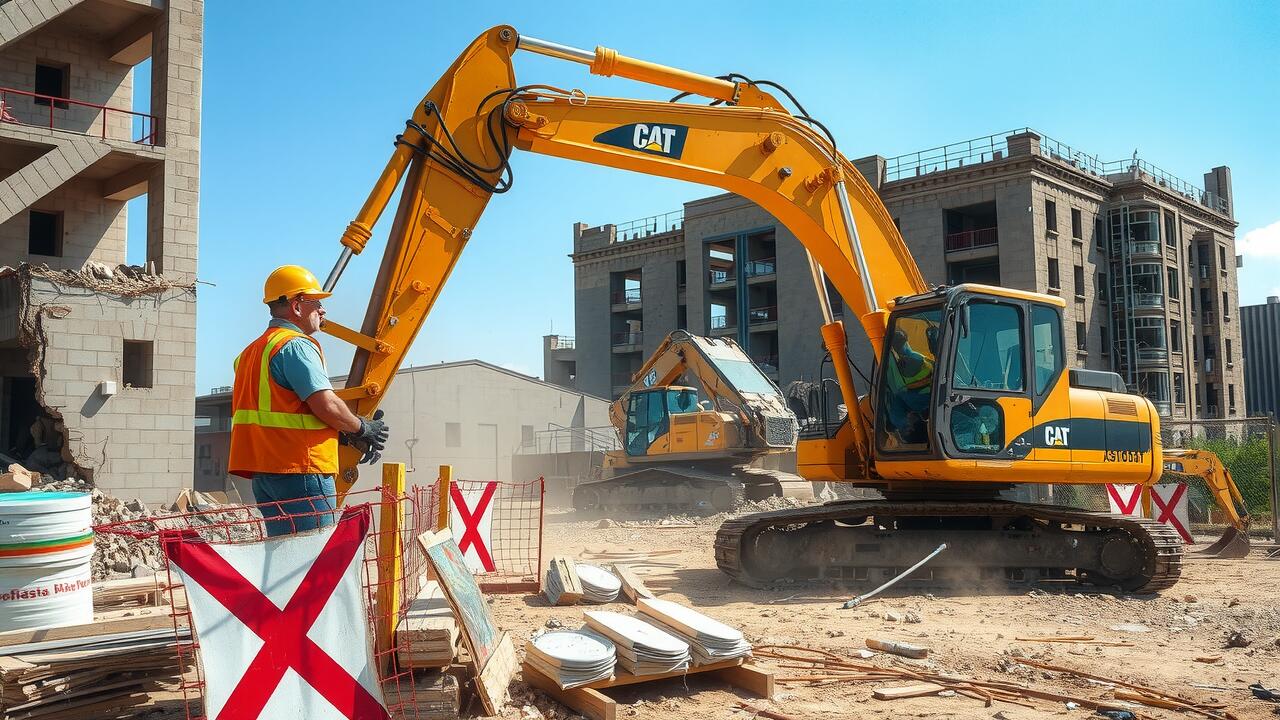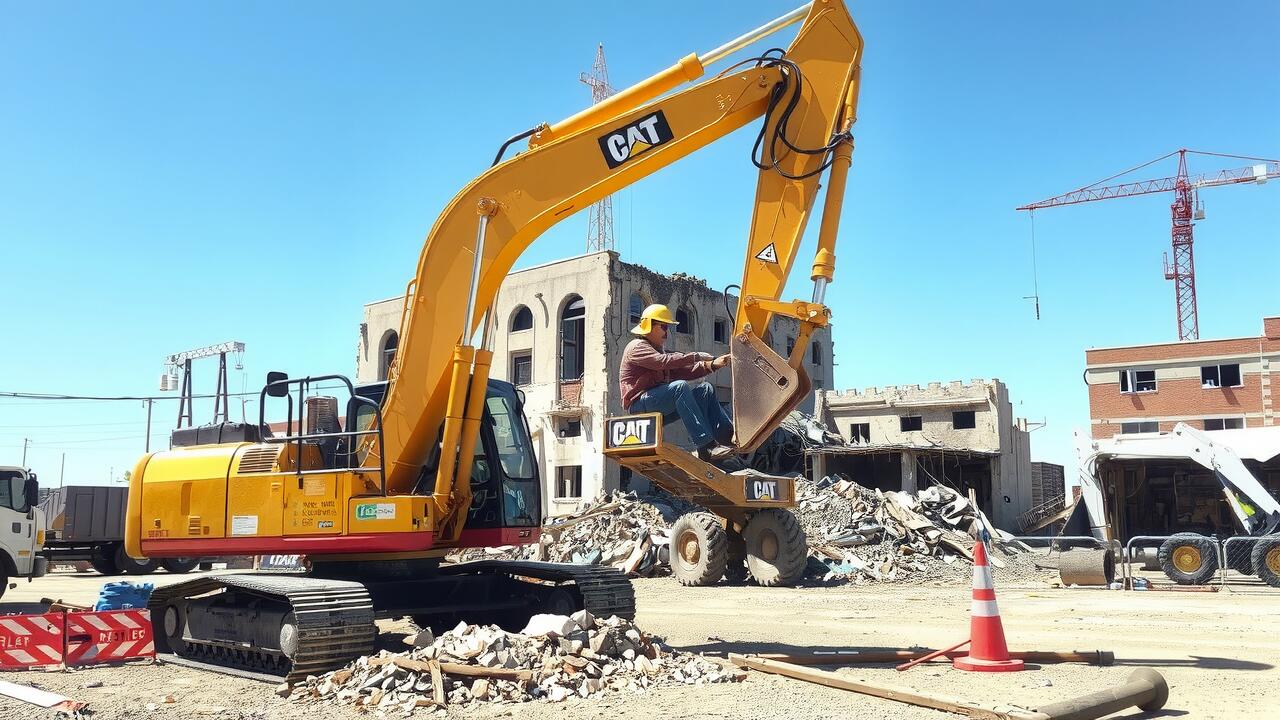
Table Of Contents
Labor Costs in Demolition
Labor costs play a significant role in the overall budget for a demolition project. These expenses primarily involve wages for skilled and unskilled workers, along with any necessary benefits. Factors such as the complexity of the project, the type of materials being demolished, and the duration of the job can influence labor costs. Depending on the location, it may be beneficial to search online for “Demolition Services near me” to find local contractors who can accurately estimate these expenses based on the specific requirements of the project.
The workforce required for a demolition job often includes a variety of specialists. These roles range from demolition experts trained to handle hazardous materials to laborers who perform the physical tasks. Additionally, project managers and safety personnel might be necessary to ensure compliance with regulations and proper coordination. When calculating labor costs, it’s essential to consider not only hourly wages but also the potential need for overtime and any required certifications that may add to the expense. Properly evaluating these elements helps in creating a more accurate overall cost estimate.
Estimating Workforce Expenses
Labor costs represent a significant portion of the total expenses in any demolition project. When estimating these costs, it is essential to consider the size and complexity of the job, as well as local wage rates. Different projects may require various levels of skill or experience, affecting the overall labor cost. Additionally, it’s important to factor in not only the hours needed for the demolition itself but also for any preparatory work and site cleanup after the process is complete. Consulting with local contractors who provide “Demolition Services near me” can offer insights into labor costs pertinent to the specific region.
Utilizing a thorough workforce estimation strategy can prevent budget overruns and ensure project efficiency. Companies often employ workers with varying expertise levels, from laborers to supervisors, to streamline operations. Calculating the number of personnel required and their respective pay scales allows for a more accurate estimation. Including potential overtime costs or additional hiring for large-scale projects can also help in anticipating budgetary needs, ensuring the project proceeds without financial hitches.
Equipment and Machinery Expenses
When estimating the cost of demolition, equipment and machinery expenses are significant factors to consider. The type of machinery required for a specific project depends largely on the scale and complexity of the demolition. Heavy machinery such as excavators, bulldozers, and loaders are often essential for efficiently tearing down structures. These tools not only speed up the process but also ensure safety and effectiveness when dealing with large projects.
The costs associated with these machines can vary greatly based on whether they are rented or purchased outright. Rental fees for heavy machinery can accumulate quickly, affecting the overall budget for the demolition project. For those seeking assistance, searching online for “Demolition Services near me” can provide options that include equipment rental in the overall service. Understanding these equipment expenses is essential for accurate budgeting and planning.
Rental Costs for Heavy Machinery
When estimating the cost of rental for heavy machinery in demolition projects, several factors come into play. The type of machinery required will influence the overall expense. Common equipment such as excavators, bulldozers, and cranes come at varying price points depending on their size and capabilities. Additionally, rental duration can significantly affect costs, with longer rentals often leading to discounts or more flexible terms.
Many companies that provide demolition services near me may offer competitive rates for machinery rentals. It is essential to research and compare these rates, taking into account any extra fees for delivery, pick-up, or maintenance during the rental period. Carefully considering the specific needs of your demolition project will ensure you secure the most suitable equipment at a reasonable price.
Safety and Environmental Considerations
Safety and environmental considerations play a critical role in the planning and execution of any demolition project. Before the actual demolition begins, it’s essential to conduct thorough assessments, particularly for hazardous materials like asbestos. This testing ensures that the workspace is safe for workers and the surrounding community. It also helps prevent any potential legal or health repercussions that may arise from improperly handling these materials.
With increasing regulations surrounding environmental protection, contractors must emphasize eco-friendly practices throughout the demolition process. This includes recycling materials and properly disposing of hazardous waste. Engaging local professionals or searching for “Demolition Services near me” can connect you with teams experienced in adhering to these safety and environmental standards, ensuring a responsible demolition process.
Importance of Asbestos and Hazardous Material Testing
Asbestos and other hazardous materials can pose significant health risks during demolition projects. Buildings constructed before the 1980s often contain asbestos in insulation, ceiling tiles, and flooring materials. Proper testing is essential to identify these substances before any demolition begins. Without this testing, workers and nearby occupants may be exposed to harmful fibers, leading to serious long-term health issues. Engaging demolition services near me can help ensure that these tests are performed correctly and that any hazardous materials are handled by trained professionals.
In addition to asbestos, other hazardous materials such as lead, mold, and various chemicals may also be present in older structures. Properly assessing these risks not only complies with safety regulations but also protects the environment. If hazardous materials are not addressed prior to demolition, their release can contaminate surrounding soil and water systems. Consulting with demolition services near me provides a thorough understanding of the necessary procedures and requirements, ensuring all environmental and safety standards are met.
FAQS
How do I begin estimating the cost of demolition?
Start by assessing the size and complexity of the structure, then consider labor costs, equipment rentals, and safety requirements.
What are the main factors that influence labor costs in demolition?
Labor costs can vary based on the location, the skill level of the workforce, the duration of the project, and any specialized skills required for hazardous material removal.
What types of equipment are typically needed for a demolition project?
Common equipment includes excavators, bulldozers, cranes, and safety gear. The specific machinery required will depend on the type of demolition and the building’s structure.
How can I estimate rental costs for heavy machinery?
Research local equipment rental companies to obtain quotes for daily or weekly rates and factor in the duration of your project to calculate total rental costs.
Why is it important to test for hazardous materials before demolition?
Testing for hazardous materials like asbestos or lead is crucial for safety, regulatory compliance, and to avoid potential health risks to workers and the surrounding community.
